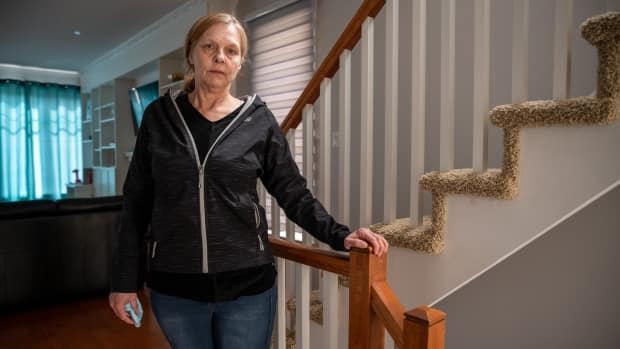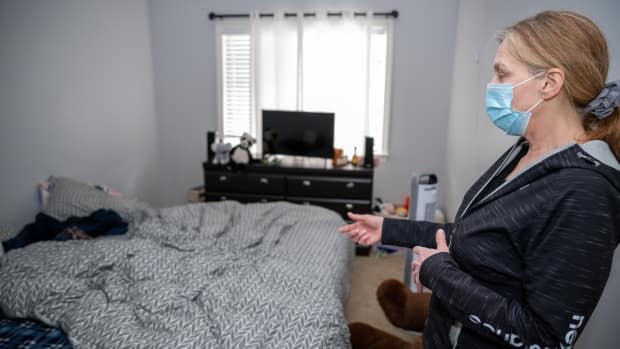'Collateral damage': No-knock police raid leaves family living in fear

Jillian McGill says it was early on a Friday morning in February when she and her six-year-old granddaughter woke to Ottawa police officers, dressed in full tactical gear and pointing rifles, at the foot of their bed.
McGill's granddaughter started screaming.
"You're just incapacitated, really, to think to answer to anything. You're just totally numb," McGill recalled.
McGill, her daughter and granddaughter were told to leave as police searched the house. The family would later find out they'd been caught up in what police call a dynamic raid, also known as a no-knock entry, part of a citywide search for guns and drugs called Project Avalanche.
Police arrested and charged Abdallah Bussany, a friend who was staying with the family at the time, but according to McGill, officers found nothing in the home. Bussany has been a friend of McGill's daughter for years, but McGill said the family had no idea police suspected him of illegal activity.
McGill said she understands police felt they had a job to do, but questions why her family had to become "collateral damage" along the way.
Family left 'broken'
Ever since, McGill has lived with trauma, fear and questions about why her family was involved in the first place.
"We're broken. We're betrayed. We're afraid," McGill said.

"I've never had my life in danger," she said. "To have the police department be the ones who do that to you, you can't process it. Like, these are people who take an oath to serve and protect."
More than two months later, the fear is still there.
"Every day I tiptoe around my house, I hide my car in the garage, I peek out cracks in the window to see if anybody's watching because they were apparently watching us and following us for two and a half months," she said.
McGill said when she and her family were allowed to return to their home later that day, police apologized, told her to contact victim services and left. But having to contact support services through the very agency that knocked down their door has been difficult for McGill.
"It takes a long time to build up your courage, and you have to be mad and you have to be broken and you really have to want to help yourself."
Dynamic entries temporarily suspended
Bussany's lawyer James Foord didn't want to comment on his client's case specifically, but told CBC he believes police need to consider alternative tactics when carrying out arrests and searches.
"You could arrest someone when they leave the house. You could do that carefully and stealthily without increasing this risk of violence and escalating things," Foord said.
Just a few weeks after McGill's home was searched, and following an investigation by The Fifth Estate, Ottawa police Chief Peter Sloly temporarily banned the use of dynamic entries.
However, Ottawa police will continue to employ the method in certain situations to preserve evidence, as long as either the chief or a designate — which can include a platoon commander, inspector or senior officer — approves it. Police will also continue using the tactic in emergency situations involving an active shooter, for example.
The Ottawa Police Service declined to comment on the raid involving the McGill home.
'Why did they think we were so worthless?'
While she's happy the tactic is under review, McGill said the damage to her family has already been done. She said she's currently working with a lawyer to pursue legal action for the way police handled the search.
McGill said she also wants to move away from Ottawa because she no longer feels safe.

"It's been a journey to just find out how you're supposed to live your life. Like, is nobody allowed in my house? If your child brings somebody home that you don't know, and you don't question them, is the police going to break down your door to remove them?"
McGill said she still doesn't understand why police "ignored the fact that there was three innocent people in the house," and didn't change tactics that morning.
"Why did they think we were so worthless?"

